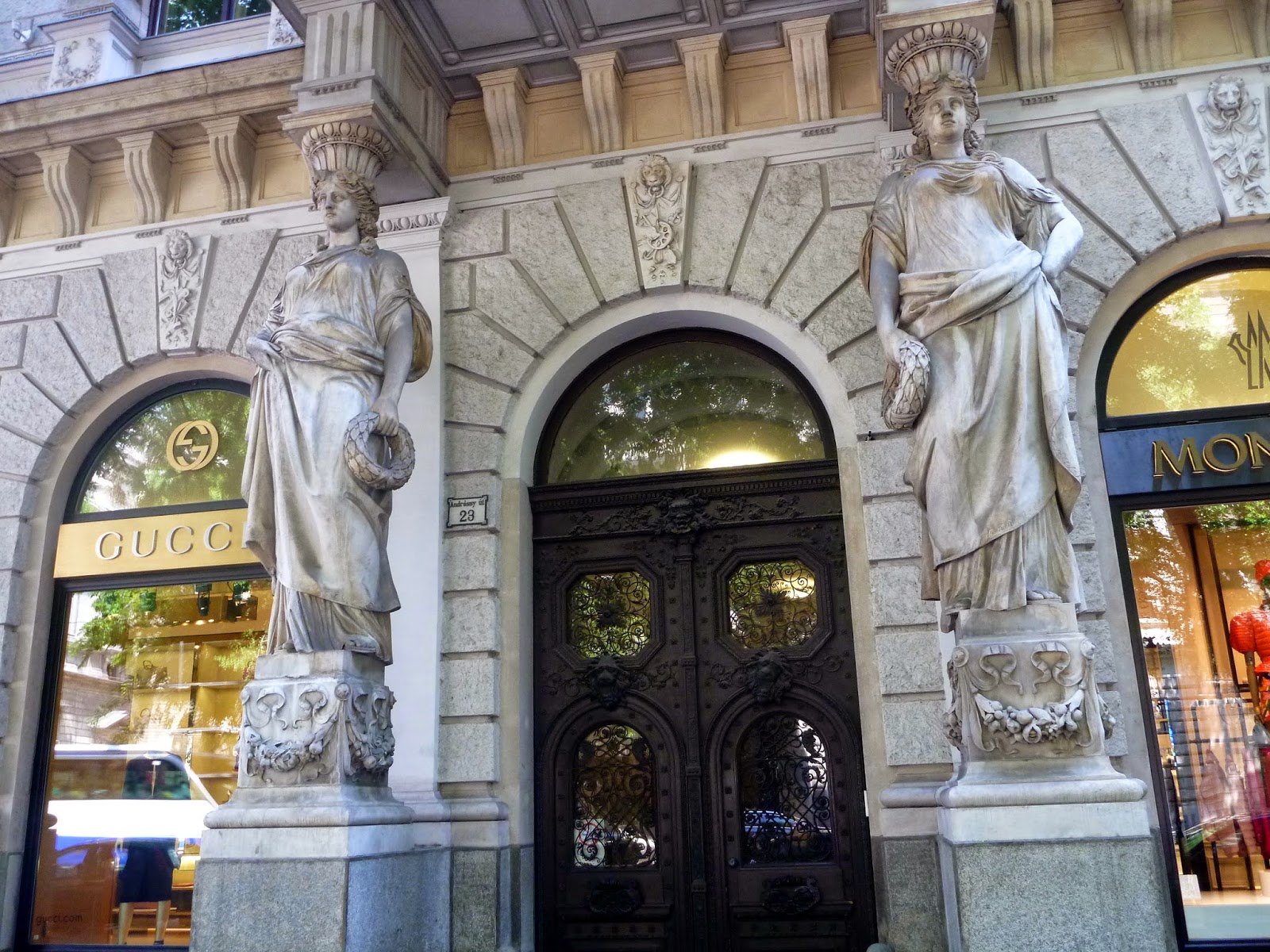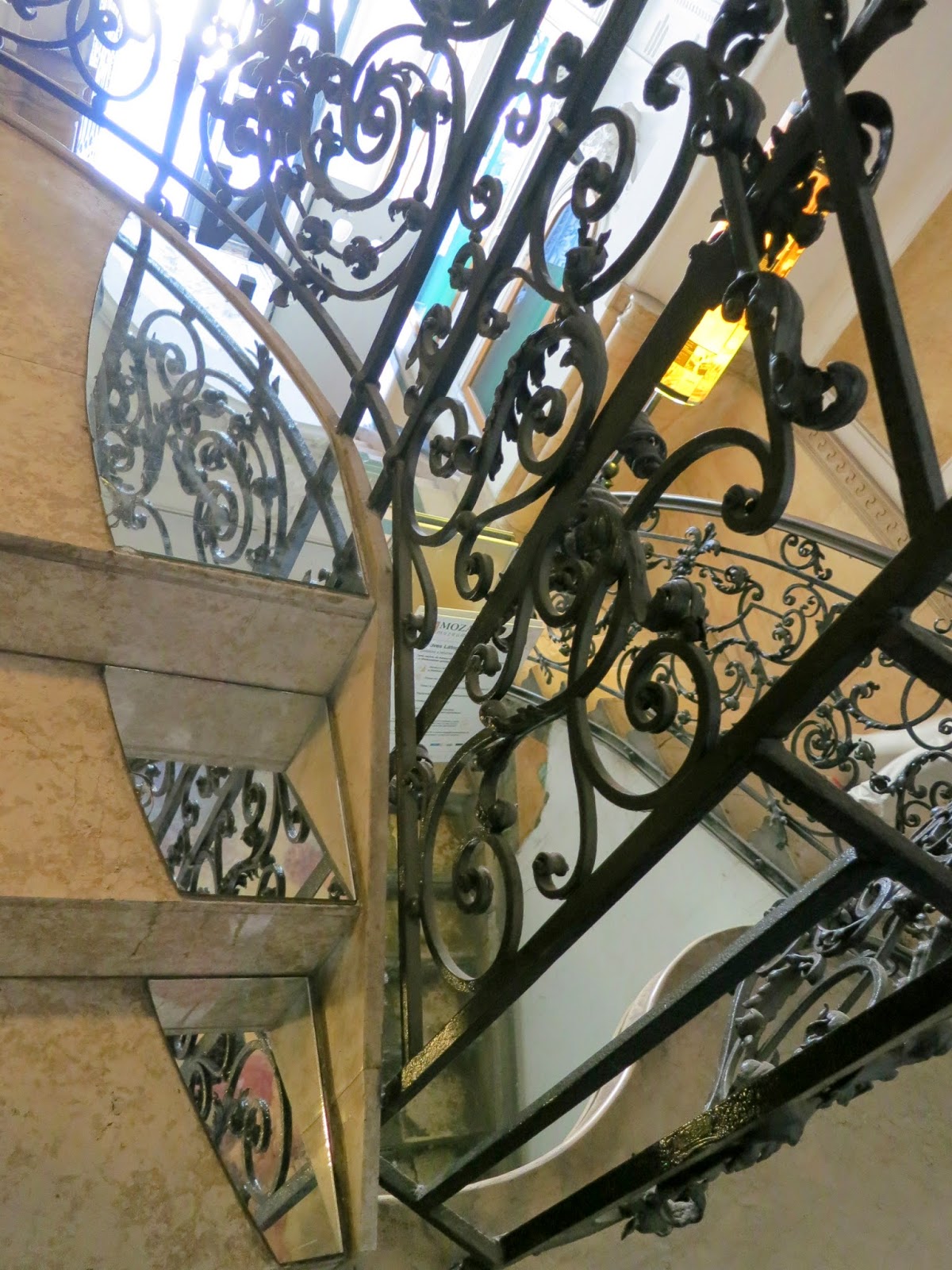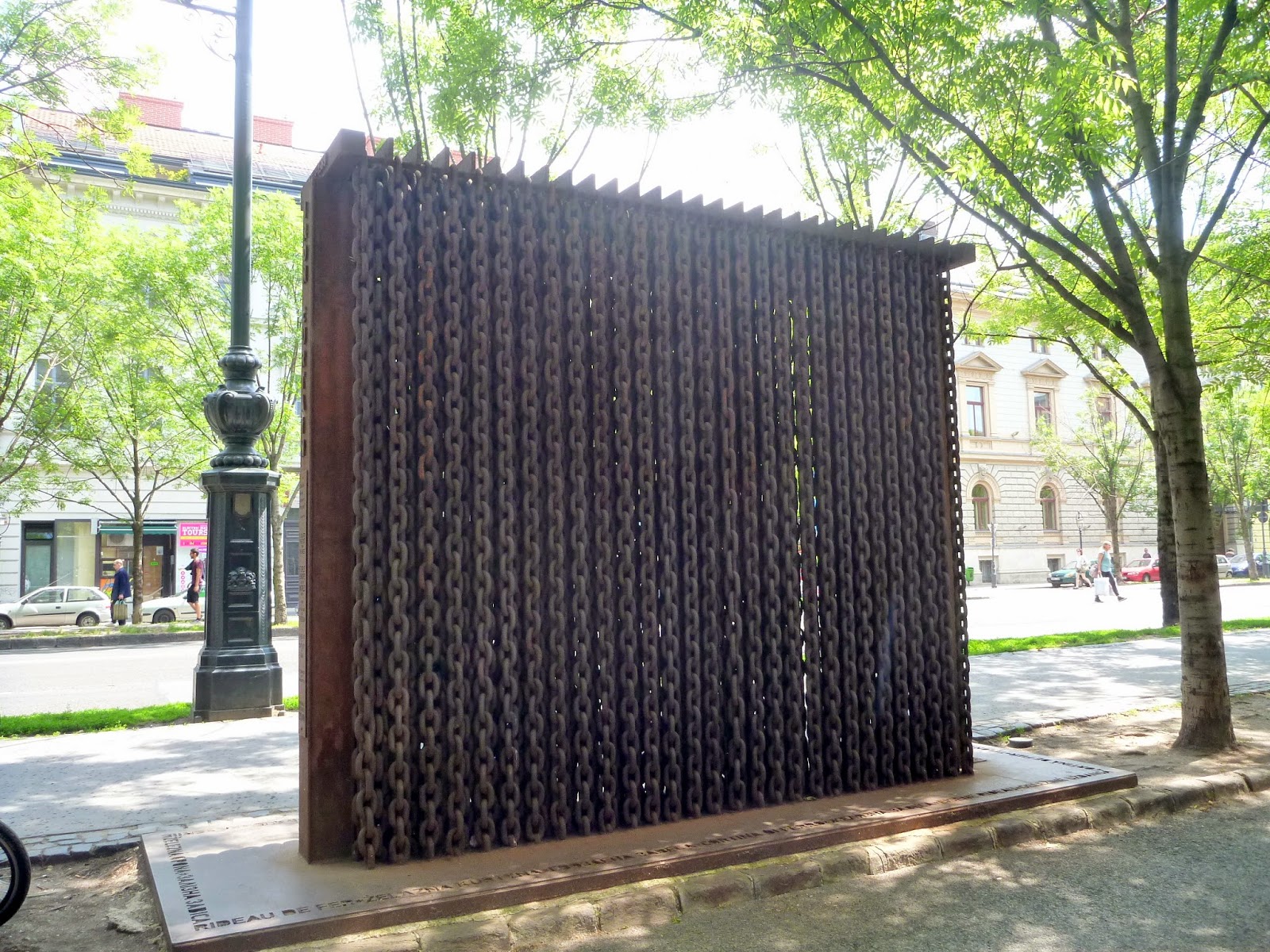The Terezvaros district was heavily influenced by Haussmann's redevelopment of Paris, and at that time it was one of the smartest districts in the city. Under Communism the area became pretty run-down but the appeal of the old apartment blocks lining the streets is now bringing in the middle classes and luxury brands like Gucci have now moved in.
This is Andrassy Ut, the main shopping street in the district.
Grand entrances
line the street.

This is the New Theatre, designed by Bela Lajta and completed in 1909.
A closer look at the blue and gold roof
one of the doors
and another one. Unfortunately it was not open so we could not go in to see the foyer which is meant to be superb.
Back on Andrassy Ut and this is the State Opera House, a neo-Renaissance building designed by Miklos Ybl. The 1260-seat auditorium was the first one in Europe to feature an iron fire curtain, underfloor heating and airconditioning. Its chandelier weighs 3 tonnes and 2.7 kilos of gold were used to gild the fixtures.
And what about these butterfly wings gates? Aren't they fantastic?
A closer look
A closer look at the main doors
The portico
a closer look at the ceiling
The main lobby
and you can see why so much gold was required for the gilding
looking up
We then turned into Nagymezo Utca and reached Mai Mano House, a museum of photography today. It used to the house of Mai Mano, court photographer.
It was closed when we were there, but we were able to admire the luscious lobby as well as going upstairs
a closer look at that ceiling
mirrors strategically placed on three of the steps made it easy to view the image on the ceiling
A bit further down Nagymezo Utca is the Ernst Museum. We were unable to go inside and admire the Art Nouveau features, but liked the door
Next stop, the Liszt Memorial Museum, where the composer spent the last years of his life.
It's a Music Academy these days
beautiful entrance,
and very grand inside
green and gold are the predominant colours
We had no luck that day, as again, we were unable to go beyond the foyer
The House of Terror is nearby, once the headquarters of the secret police. When captured by the insurgents in 1956 no trace was found of the giant meat-grinder rumoured to have been used to dispose of corpses; after the re-imposition of Soviet rule the building was thoroughly sanitised before being handed over to the Communist Youth organisation.
Opened in 2002 as a cross between a museum and a memorial, the House of Terror has been criticised for its selective approach to terror. Its public treatment of the Stalinist years is much needed but terror in 20th century Hungary extended far further - there is only a fleeting reference to the Holocaust.
Unfortunately, as it was Monday, we were yet again unable to enter.
A piece of the Berlin Wall outside the building
and a sculpture, aptly named The Iron Curtain
Lots more gorgeous buildings
looking closer
and a crescent.

































Gosh, living in Budapest must be rather like living in an architecture museum! What a pity you did not get to see the Ernst museum.
ReplyDeleteArchitecturally, it's an amazing city Olga. It's so beautiful, and so much variety. Even though we were there for a week, there was a lot we did not manage to do, but you can't do everything.... The biggest regret is that I did not get to swim in one of the baths. But never mind....
Delete